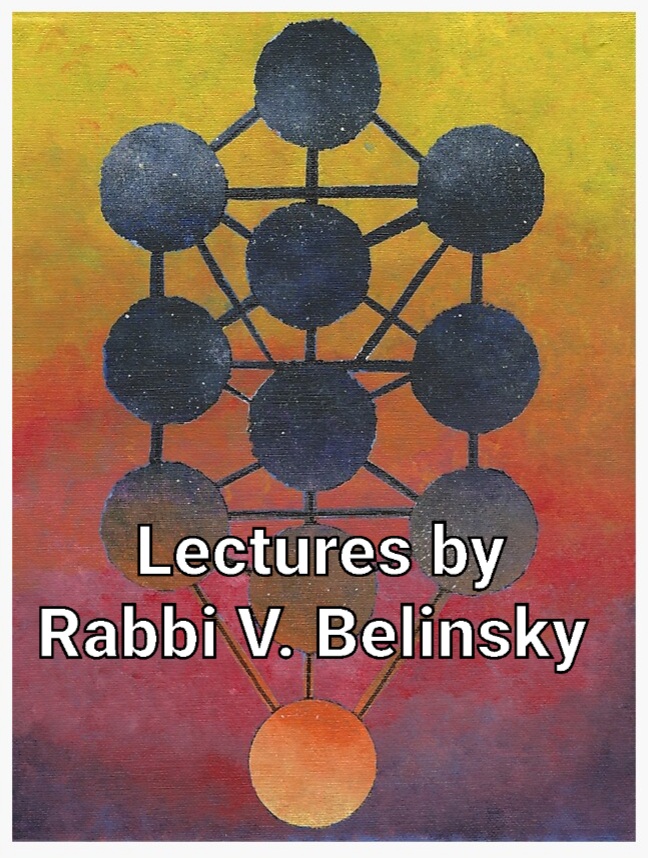Episode Transcript
[00:00:00] So I want to ask you a question.
[00:00:03] What does the word tribe mean in English?
[00:00:07] So in English, the word tribe comes from Latin tribus. In ancient Rome, this is how they were describing different segments of population, different ethnic groups, different people segregated by their religious beliefs and so on.
[00:00:28] So word tribe is actually indicating separation.
[00:00:33] In Hebrew, there are two words for tribe and they both signify something very opposite.
[00:00:41] There's a word and then there's a word shevet.
[00:00:48] Both of these words in translation means a branch.
[00:00:53] So word chevrolet, tribe in Hebrew signifies not the separation, but the other way around, how we are all together because we are all branches of the same tree.
[00:01:04] But now we also have to understand why they are two words in Hebrew for the same thing.
[00:01:11] You probably already heard me saying that Hebrew is a very concise language. And in Hebrew we do not have synonyms.
[00:01:21] The entire language of Hebrew does not have any synonyms because every word has its own unique, precise definition.
[00:01:32] So then how could there be two words for tribe in Hebrew? So this is the answer.
[00:01:40] Mate and shevet in Hebrew have the same meaning, branch. But it's a branch in a different state of its being.
[00:01:50] Shevet is a branch which is still attached to the tree.
[00:01:55] So shevet is a branch. The way it's growing, mate is also a branch, but it's a branch which is already cut off. As a matter of fact, a walking stick very often is called mate in Hebrew because walking stick is made out of branch which is already cut off.
[00:02:15] So now why are there two words for shevet and why are there two words that signify a branch which is cut off and a branch which is still attached?
[00:02:27] And here is the answer.
[00:02:29] We Jews can be in two different states.
[00:02:33] We can live our lives the way we feel our connection with our source.
[00:02:39] We are like shavet a branch which is attached to the tree.
[00:02:43] And we can be in a different state of existence where we feel disconnected from our source.
[00:02:53] And generally this is describing in our history how we were in times of a temple. Because in times of a temple, every single Jew felt how he is a part of the Jewish nation, a part of God's desire. And he understood that his physical well being depends on his spiritual well being.
[00:03:13] But now we are in exile comes from the fact that we don't feel how we are connected with God. We don't feel how we are part of divine plan. We don't feel how our physical well being depends on our spiritual well being.
[00:03:29] And it is a known quote of Rabbi Levitzhak of Berdichev, who turned to God once and said, God, you are playing the unfair game. You took all of our spiritual values and you hid them in the books. You took all of our material pleasures and you put them in front of our eyes. And then you want us to follow the spiritual values and not the material pleasures. You, God, he said, do it the other way around. Hide all spiritual pleasures inside the books.
[00:04:00] Put all the spiritual values in front of our eyes.
[00:04:05] Hide all the material pleasures in the books. Put all the spiritual values in front of our eyes. And then you'll see, I promise you, we'll all follow the spiritual values and do the right things.
[00:04:18] So now then, there is another way how we Jews can be described.
[00:04:24] How there's another way, how we can make a distinction between these two words that both described the tribes of Israel, Mateh and Shevet.
[00:04:34] When we Jews are still in our primordial state before we are born, when our souls are still in heaven, we can be called a shaved. We are a branch which is still attached to the tree. But when we come down here, we are like a mate. We already don't feel our connection with God because our souls are here already independent.
[00:04:59] And here is another interesting thing. This is a very interesting part.
[00:05:04] What is the difference between a branch, the way it is attached to the tree, and a branch when it's already disconnected? The branch which is attached to the tree has moist in it. And branch which is attached to the tree is flexible, but the branch is cut off, is dry and not flexible. But at the same time it's much stronger, it's much firmer.
[00:05:28] This is how we see our lesson.
[00:05:30] When we are connected up, up above, we are much more flexible. But when we come down here, the way to live our lives here, the only way how we can survive down here by being firm, like a mate, like a branch which is already cut off.
[00:05:52] Because if we'll start being flexible with our values down here, we will not be able to survive. We will have to sacrifice our values and sacrifice our spiritual life. And then we will not be able to make it.
[00:06:07] The only way for us to survive down here is by remembering that when a branch is getting cut off, when it feels not connected anymore with its source, the only way, how it could continue its existence, if it's going to be firm, if it's going to be strong.
[00:06:26] And this is how we need to live our lives here.
[00:06:31] When we perceive spirituality, when we are connected with our spirituality, maybe then we could go on some compromises. Because we are intuitively and intimately bonded with the spiritual reality. So we can sometimes know when we could be a little bit flexible.
[00:06:52] But that's only for our souls up there. Or for righteous people who are always us feeling their connection with God. Or for Jews, the way we were in times of the temple, because back then we were feeling our connection with God. So then you could be a little bit flexible. Sometimes if we feel disconnected with God, we need to learn from a branch which is disconnected from God. It becomes firm.
[00:07:21] From a branch we need to learn which is disconnected with its source. We need to be firm, we need to be strong. We cannot bend.
[00:07:29] So people very often mistakenly feel that. Oh, the righteous people who feel their connection with God, they are very, very firm in their beliefs. But for us, we could have little leniencies. It's the other way around.
[00:07:44] Because we don't feel our connection with God. That's why we should not have any leniences, because we need to be firm. If we will start compromising, we don't have this intuition, we don't have this natural connection that will allow us to know when we can compromise, when we can be flexible, when we have to stand firm every time. Like a branch which is already cut off from the tree.


